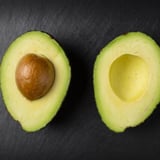lundi 13 août 2018
This Doctor Explains Why Vegetarians Should Do the Keto Diet

If you follow any keto-lovers on Instagram, then you're probably bombarded with mouthwatering photos of bunless burgers, chicken wings, and bacon-wrapped everything. And while meat does play a role in the keto diet, it doesn't have to be the diet's foundation. In fact, it's totally possible to do the keto diet without eating meat.
The keto diet, which is high fat, moderate protein, and super low carb, has helped countless people lose weight and totally transform their lives. Although it's a little more difficult, it's totally possible for vegetarians and vegans to go keto. Especially for vegetarian who still consume eggs and dairy (lacto-ovo vegetarians) - full-fat dairy is a staple of the keto diet.
But not only is the keto diet doable for vegetarians, it's actually advised for those who are diabetic or have metabolic syndrome, which is a cluster of conditions that include high blood pressure, high blood sugar, excess abdominal fat, and increased cholesterol levels.
"A well-formulated ketogenic diet has been demonstrated to be very effective in reversing type 2 diabetes and metabolic syndrome," Steve Phinney, MD, PhD, chief medical officer at Virta Health, told POPSUGAR. "These conditions are increasingly common, even in vegetarians."
Dr. Phinney and his colleagues treat type 2 diabetes patients with the keto diet at the Virta Clinic. Patients who followed a keto diet under medical supervision at the Virta Clinic saw a reduction in blood sugar levels, heart disease risk factors, and fatty liver and less dependency on medications. They also had lower markers for inflammation.
Since vegetarians can also get heart disease, fatty liver, and diabetes and have inflammation, the keto diet could be helpful to lose weight and get their chronic conditions, including type 2 diabetes, under control. And even though many people assume the keto diet is all meat and cheese, it's actually incredibly veggie-heavy, which works out well for vegetarians.
"We typically instruct our patients to have four to five servings of nonstarchy vegetables per day as part of a well-formulated ketogenic diet," Dr. Phinney explained. "While this seems like a lot to some of our omnivore patients, it's just a normal day for a vegetarian."
Of course, be sure to speak to your doctor and other healthcare providers before making any major dietary changes, including going on the keto diet.










0 comments:
Enregistrer un commentaire